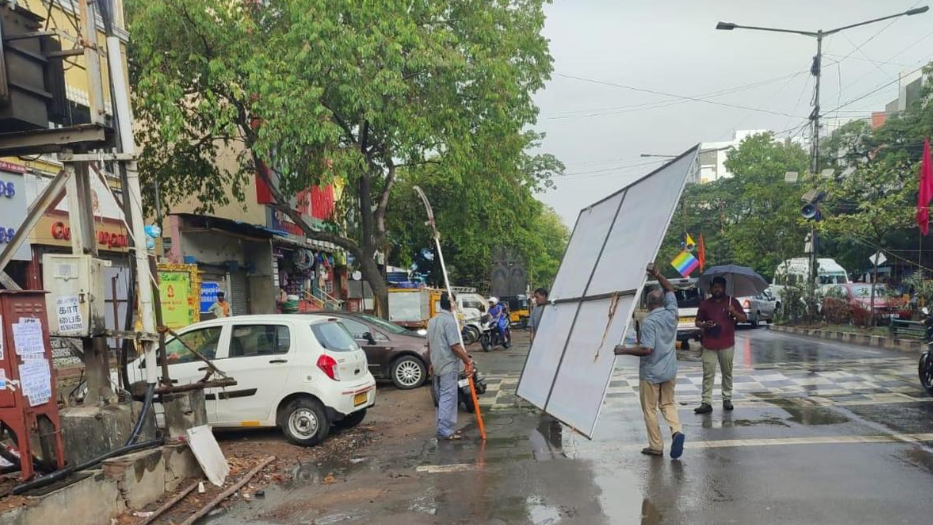
Chennai to Audit Hoarding Safety
Greater Chennai Corporation to Conduct Structural Stability Audit of Hoardings and Banners
The Greater Chennai Corporation (GCC) has announced an upcoming audit of the structural stability of scaffoldings supporting hoardings, billboards, and banners throughout the city. This initiative, overseen at the zonal level, was confirmed by Commissioner J. Radhakrishnan.
In light of the tragic incident in Mumbai on May 13, where an unauthorized hoarding collapse resulted in the deaths of 14 individuals, Commissioner Radhakrishnan has urged the removal of all illegal hoardings and called for a special drive to audit the structural stability of existing banners and hoardings. He emphasized the importance of vigilance, particularly for structures near roads, petrol stations, and public areas.
Since March 1, the GCC has removed 514 illegal hoardings, including 300 that were dismantled along with their scaffoldings. In the past 15 days alone, 53 hoardings have been taken down as part of an intensified campaign. Additional Commissioner (Revenue and Finance) R. Lalitha noted that most of these hoardings were erected without licenses and pose significant structural risks. The upcoming audits will be conducted by structural engineers at the zonal level.
An executive engineer from the Corporation explained that many of the hoarding structures are made of steel. He confirmed that all banners and hoardings encroaching on roads, pavements, and bridges would soon be removed due to safety concerns.
Ms. Lalitha outlined four categories of spaces where hoardings and banners can be legally erected: open government land, bus shelters, center medians, streetlights, parks, and private lands. For private land hoardings, parties must obtain a license from the Corporation.
Per Rule 320 of the Tamil Nadu Urban Local Bodies Act, 2023, applications for hoarding licenses must be submitted to the Commissioner with a detailed plan and location, a stability certificate from a structural engineer, a No Objection Certificate (NOC) from the landowner or relevant authority, a test certificate from a licensed electrical engineer, and proof of application fee payment.
A ‘Single Window Committee’ composed of civic body officers and local traffic police will review and recommend license applications to the Commissioner, as stipulated in Rule 321. To date, no licenses have been issued by this committee. There are currently 762 cases of illegal hoardings, some of which have paid damage fees and are eligible to reapply for licenses. Approximately 350 more applications are under review.
Addressing the issue of recurrent illegal hoarding hotspots, Ms. Lalitha mentioned that spaces under flyovers and bus stands are frequently used without permits. A targeted drive to identify and address these locations is planned following the announcement of the Lok Sabha election results.
